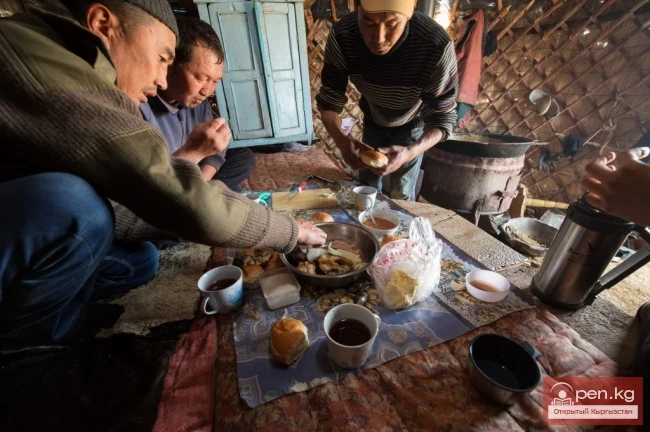The Amazing Kyrgyzstan in the Notes of a German Traveler: Mountain Lakes
Son-Kul. Fishermen having lunch in their yurt
Christoph Rehage is a German traveler, writer, and director. He became famous for his journey across China — over the course of a year, Rehage walked more than 4,500 kilometers from Beijing to Urumqi. The film The Longest Way, made during this journey, was listed among the top ten viral videos of 2009 by Time magazine.
In the fall of 2014, Rehage visited Kyrgyzstan and filmed a series of stunning videos about various cities in the country. He accompanied all the clips with witty travel notes about the places and people he encountered there.
Kloop.kg begins to publish translations of Rehage's stories about Kyrgyzstan.
I drove a car in Kyrgyzstan only once. It was an SUV — a solid mass of steel, glass, and plastic, and it handled the muddy puddles and potholes on the mountain roads quite well.
Once, however, I got stuck in a hole and somehow tore the exhaust pipe, after which it became unbearably noisy. Drivers on the road turned their heads because of the noise, which embarrassed me a bit. But, in any case, the car was good.
Kyrgyzstan seems like a dream country. There are long roads with panoramic views. Cows gazing into the distance. Horses and sheep. Flowers covered in ice.
When I arrived in Arslanbob, the walnut groves were covered in snow. Lake Chatyr-Kul turned out to be behind a checkpoint that required special permission and was open for visits only for a limited time. But if you get there, you can see China on the other side of a simple fence.
Osh felt like a separate country within a country. Tash-Rabat was so ancient that it resembled a haunted house. And Chatyr-Kul turned out to be the most beautiful of all the lakes.
But it was Son-Kul that turned out to be the place where my car got stuck in a hole. I was driving at night, and the hole was right in the middle of the road. By the time I noticed it, it was already too late.
The night was memorable for its cold and stars.
The next day I stumbled upon a group of fishermen who not only helped me pull my car out of the hole but also invited me to lunch. They told me that they used to be "blue-collar workers" in Moscow, but living here is much better. In the end, they returned. Once a week, they go down to the city to sell their catch.
The rest of the time, they paddle around the lake in boats in the mornings, and after that, they seem to have little else to do. Their hands have become strong from rowing. They earn enough to afford a generator for their refrigerator, but not a television. I found a couple of empty vodka bottles near their yurt.
I was curious if their life was stress-free?
"Yes," they replied. Just one word: yes.
For lunch, they treated me to fried fish with onions, bread, and caviar. The fish, like the caviar, was freshly caught from the lake. They eat part of their catch and sell the other part. Some of the caviar is given for a wildlife conservation project. In the past, someone started breeding large predatory fish in the lake, and now the other native species are struggling; they need help.
"How much do you think this caviar is worth?" one of the fishermen asked me while we were eating.
I looked at my spoon, at the orange balls of caviar. I had no idea of their value.
"In the city, we sell it for $50 per 100 grams."
Wow, I said, thinking about how many grams were in my spoon.
He smiled slyly, and his smile suggested that he was about to share with me a secret he had kept for a long time: "You know," he said, "here I eat 200 grams every day!"
I told him he was a rich man.
"Rich," he said, scooping another spoonful, "Yes, rich."
Translation: Malika Bayaz
Read also:

Types of Insects Listed in the 2004 IUCN RLTS Not Included in the Red Book of Kyrgyzstan
Insect species listed in the 2004 IUCN RLTS, not included in the Red Book of Kyrgyzstan 1....

Types of Higher Plants Listed in the "Red Book" of Kyrgyzstan (1985)
Species of higher plants removed from the "Red Book" of Kyrgyzstan (1985) Species of...

Tourist Area Management Program
The project "USAID Business Development Initiative" (BGI), within the tourism...

Poet, Prose Writer Tash Miyashev
Poet and prose writer T. Miyashev was born in the village of Papai in the Karasuu district of the...

Prose Writer, Critic Dairbek Kazakbaev
Prose writer and critic D. Kazakbaev was born on June 20, 1940, in the village of Dzhan-Talap,...

Types of Insects Excluded from the Red Book of Kyrgyzstan
Insect species excluded from the Red Data Book of Kyrgyzstan Insect species excluded from the Red...

The Poet Baidilda Sarnogoev
Poet B. Sarnogoev was born on January 14, 1932, in the village of Budenovka, Talas District, Talas...
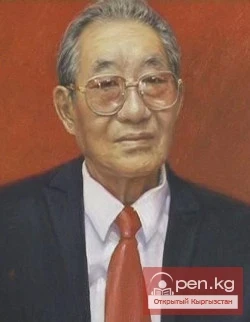
Poet, Prose Writer Isabek Isakov
Poet and prose writer I. Isakov was born on September 1, 1933, in the village of Kochkorka,...

The Poet Sooronbay Jusuyev
Poet S. Dzhusuev was born in the wintering place Kyzyl-Dzhar in the current Soviet district of the...

Prose Writer Duyshen Sulaymanov
Prose writer D. Su laymanov was born in the village of Jilaymash in the Sokuluk district of the...

Poet, Prose Writer Medetbek Seitaliev
Poet and prose writer M. Seitaliev was born in the village of Uch-Emchek in the Talas district of...
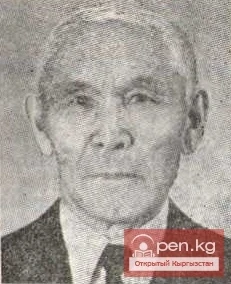
Literary scholar, prose writer, poet Dzaki Tashtemirov
Literary scholar, prose writer, poet Dz. Tashtemirov was born on October 15, 1913—October 7, 1988,...
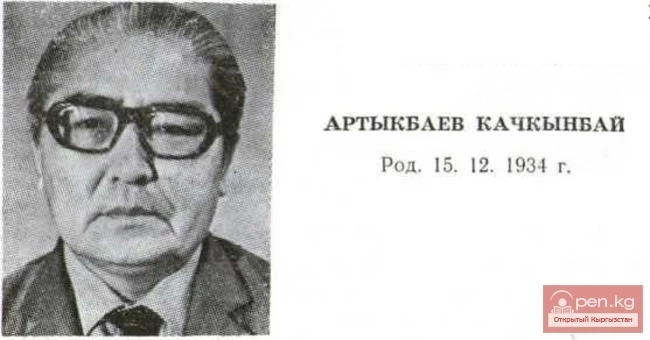
Critic, Literary Scholar, Poet Kachkynbai Artykbaev
Critic, literary scholar, poet K. Artykbaev was born in the village of Keper-Aryk in the Moscow...
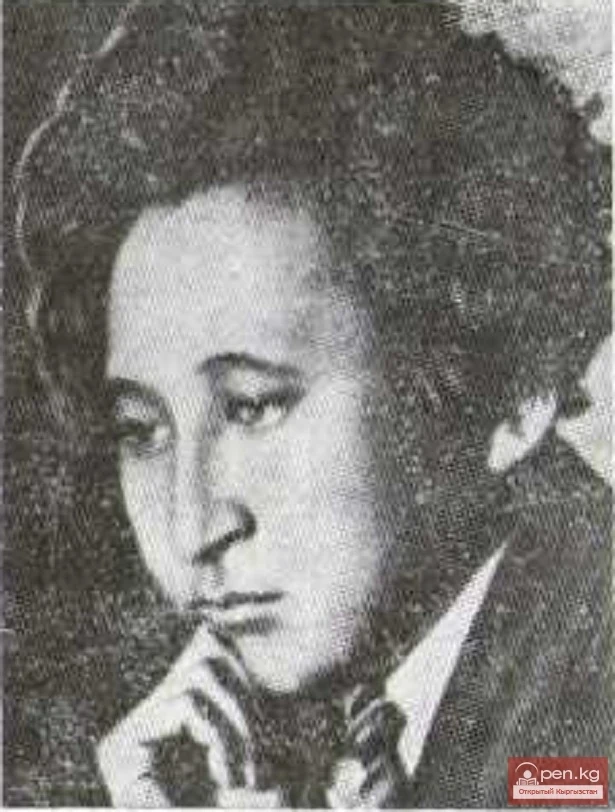
Poet, playwright Dzhomart Bokonbaev
Poet and playwright J. Bokonbaev was born on May 16, 1910 — July 1, 1944, in the village of...

The Poet Kubanych Akaev
Poet K. Akaev was born on November 7, 1919—May 19, 1982, in the village of Kyzyl-Suu, Kemin...

Poet, Playwright J. Sadykov
Poet and playwright J. Sadykov was born on October 23, 1932, in the village of Kichi-Kemin, Kemin...
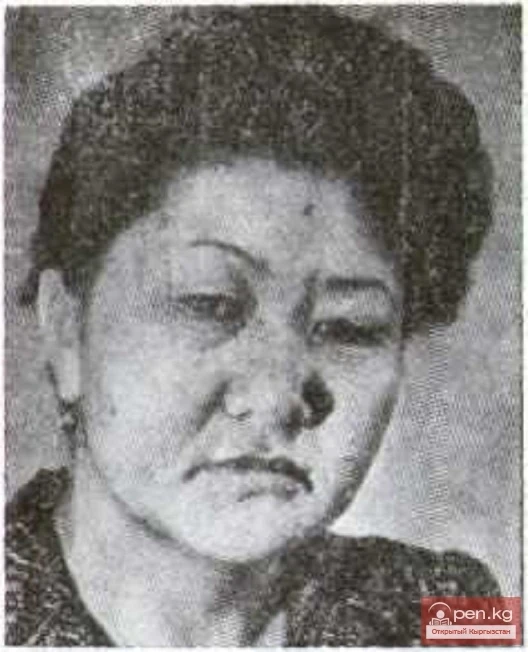
The Poet Alymkan Degenbaeva
Poet A. Degenbaeva was born on May 12, 1941, in the village of Belovodskoye, Moscow District,...
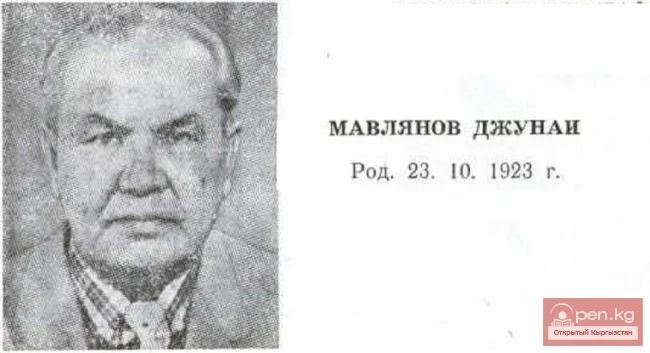
Prose Writer, Poet Junay Mavlyanov
Prose writer and poet J. Mavlyanov was born in the village of Renzhit (now the village of...
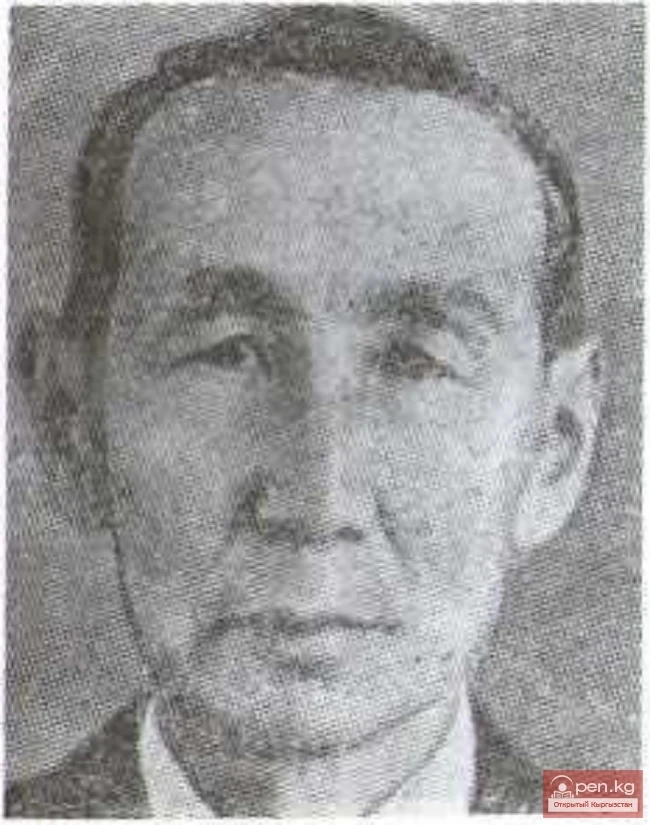
Prose Writer Kasymaly Bayalinov
Prose writer K. Bayalynov was born on September 25, 1902—September 3, 1979, in the Kotmaldy area...
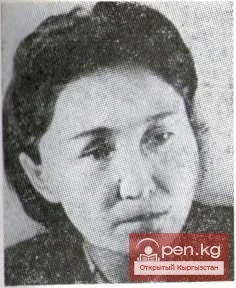
Critic, Literary Scholar Bibi Kerimdzhanova
Critic, literary scholar B. Kerimdzhanova was born on October 30, 1920, in the village of...

Prose Writer, Journalist Djapar Saatov
Prose writer, journalist Dzh. Saatov was born on February 15, 1930, in the village of Alchaluu,...
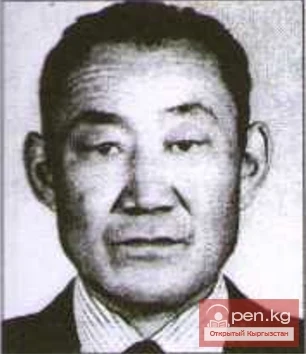
Osmonov Anvar Osmonovich
Osmonov Anvar Osmonovich (1941), Doctor of Veterinary Sciences (2000) Kyrgyz. Born in the village...

Poet, Prose Writer Mar Aliev
Poet and prose writer M. Aliev was born on July 14, 1932, in the village of Kochkorka, Kochkorka...
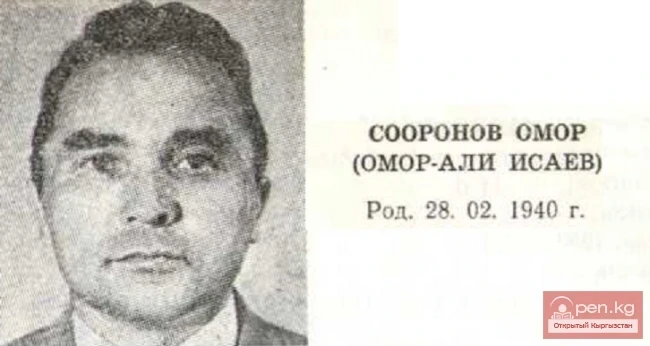
Poet, Critic, Literary Scholar Omor Sooronov
Poet, critic, literary scholar O. Sooronov was born in the village of Gologon in the Bazar-Kurgan...
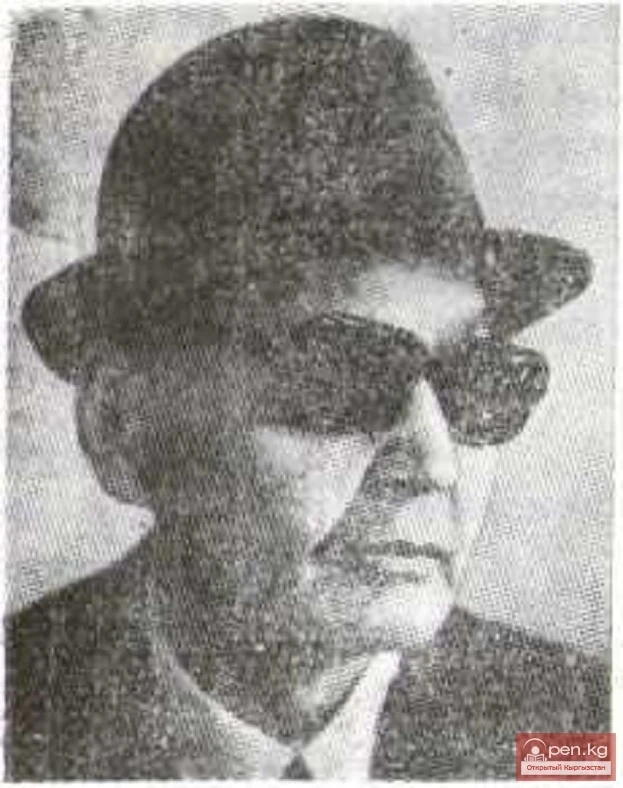
Poet Abdravit Berdibaev
Poet A. Berdibaev was born on 9. 1916—24. 06. 1980 in the village of Maltabar, Moscow District,...
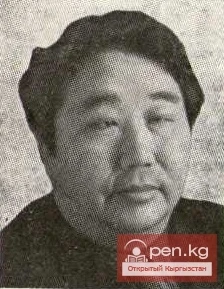
The Poet Smar Shimeev
Poet S. Shimeev was born on November 15, 1921—September 3, 1976, in the village of Almaluu, Kemin...
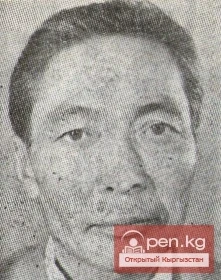
The title translates to "Poet Soviet Urmambetov."
Poet S. Urmambetov was born on March 12, 1934, in the village of Toru-Aigyr, Issyk-Kul District,...
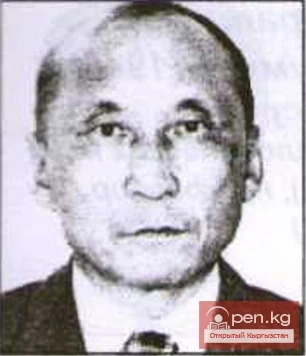
Omuraliyev Ashymkan
Omuraliyev Ashymkan (1928), Doctor of Historical Sciences (1975), Professor (1977) Kyrgyz. Born in...

Critic, Literary Scholar A. Sadykov
Critic and literary scholar A. Sadikov was born in the village of Kara-Suu in the At-Bashinsky...
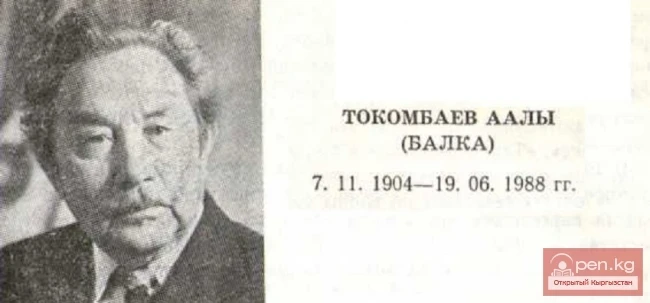
Poet, Prose Writer, Playwright Aaly Tokombaev (Balky)
Poet, prose writer, playwright A. Tokombaev was born in the village of Kainy in the present-day...
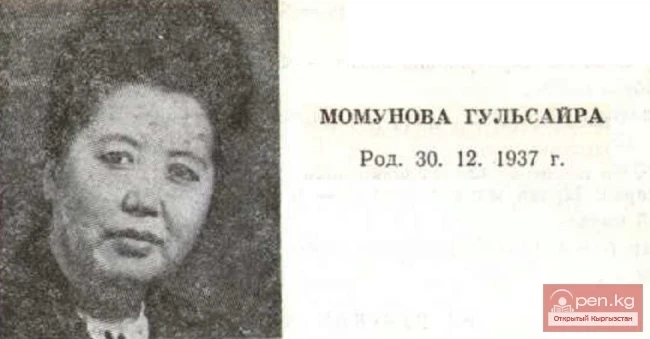
The Poet Gulsaira Momunova
Poet G. Momunova was born in the village of Ken-Aral in the Leninpol district of the Talas region...
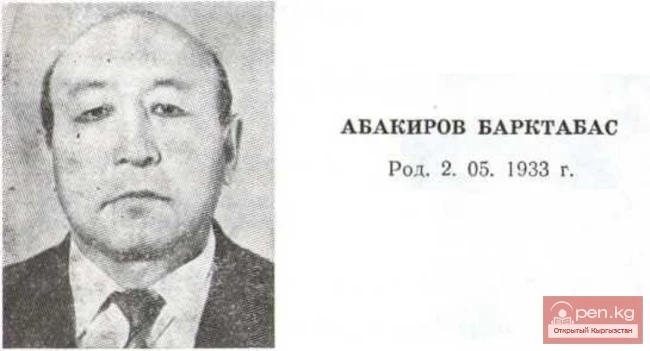
Poet, Journalist Barktabas Abakirov
Poet and journalist B. Abakirov was born in the village of Kum-Dyube in the Kochkor district of...
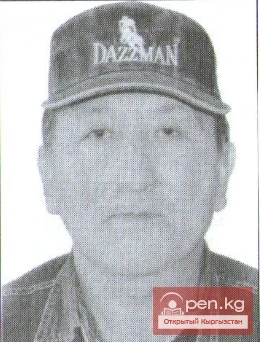
Sydykov Arstanaaly Arstambekovich
Sydykov Arstanaaly Arstambekovich Painter. Born on February 2, 1952, in the village of Kerben,...
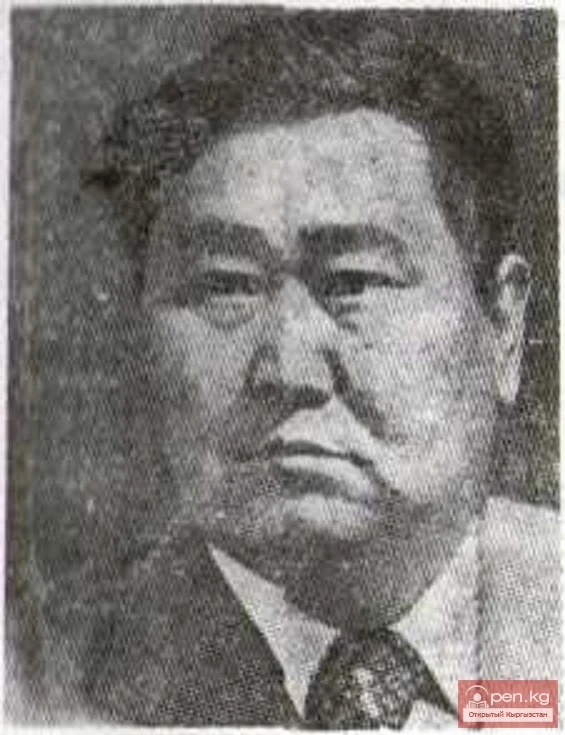
Poet Dzholdoshbay Abdykalikov
Poet J. Abdykalikov was born in the village of Tashtak in the Issyk-Kul district of the Issyk-Kul...
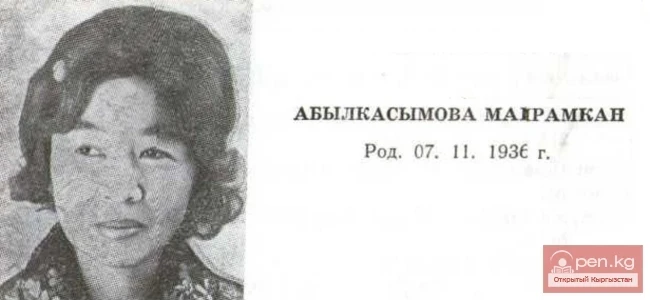
Poet Mayramkan Abylkasymova
Poet M. Abylkasymova was born in the village of Almaluu in the Kemin district of the Kirghiz SSR...
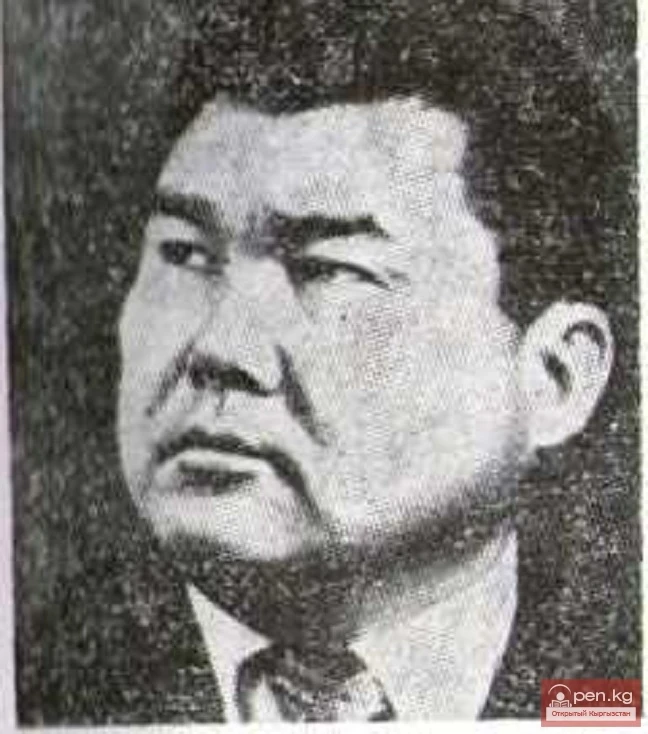
Critic, Poet, Prose Writer Kambarly Bobulov
Critic, poet, prose writer K. Bobulov was born on May 15, 1936, in the village of Osor, Nookat...
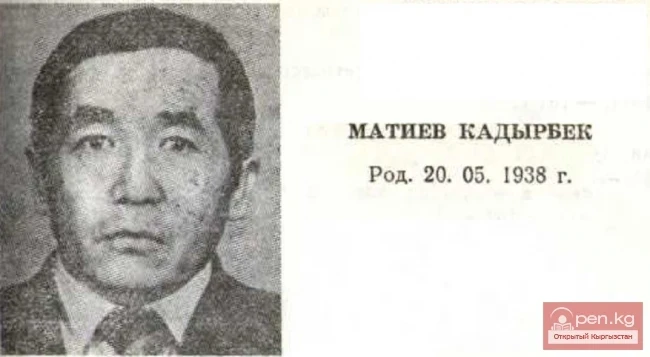
Critic, Literary Scholar Kadyrbek Matiyev
Critic, literary scholar Kadyrbek Matiev was born in the village of Ak-Took in the Suzak district...
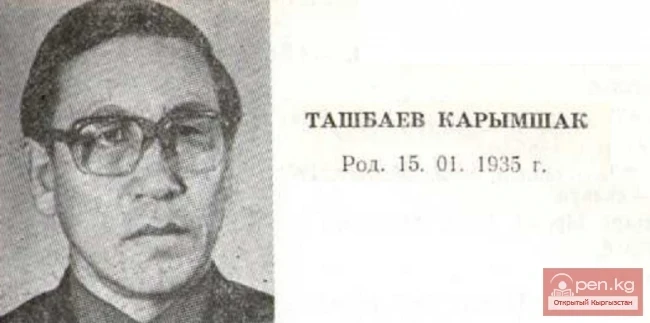
Poet Karymshak Tashbaev
Poet K. Tashbaev was born in the village of Shyrkyratma in the Soviet district of the Osh region...
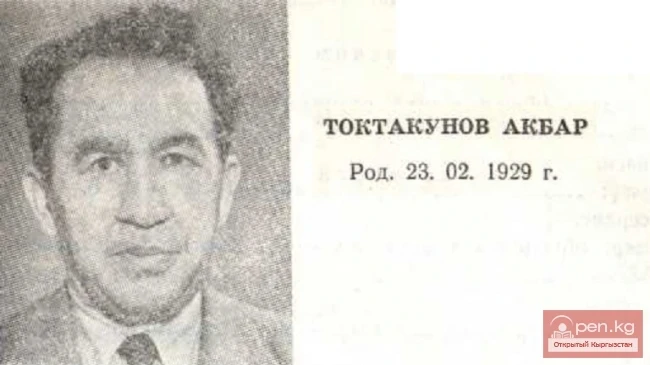
The Poet Akbar Toktakunov
Poet A. Toktakunov was born in the village of Chym-Korgon in the Kemin district of the Kyrgyz SSR...
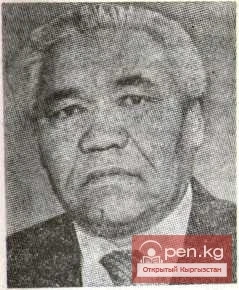
Prose Writer Kachkynbay (KYRGYZBAI) Osmonaliev
Prose writer K. Osmonaliev was born on March 5, 1929, in the village of Chayek, Jumgal district,...
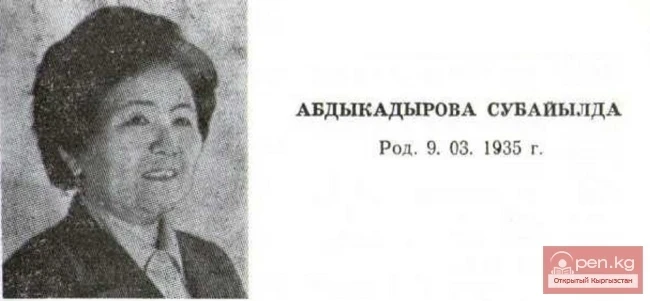
The Poet Subayilda Abdykadyrov
Poet S. Abdykadyrova was born in the village of Sary-Bulak in the Kalinin district of the Kirghiz...
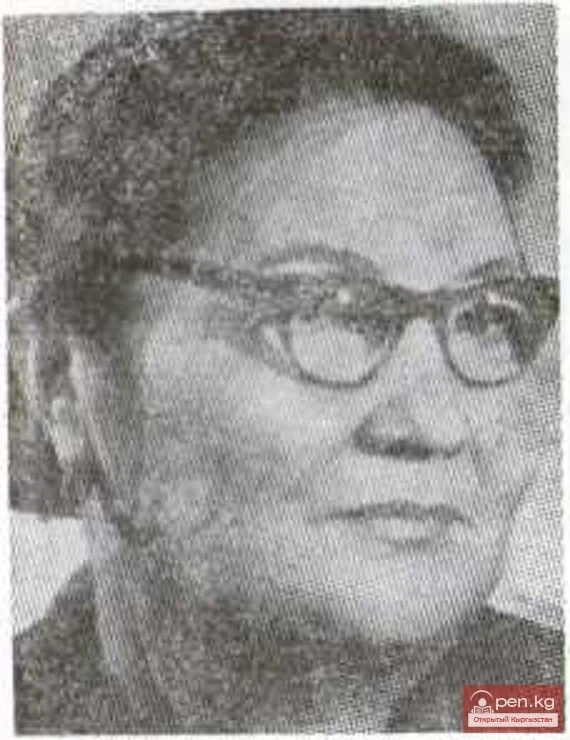
The Poet Tenti Adysheva
Poet T. Adysheva was born in 1920 and passed away on April 19, 1984, in the village of...
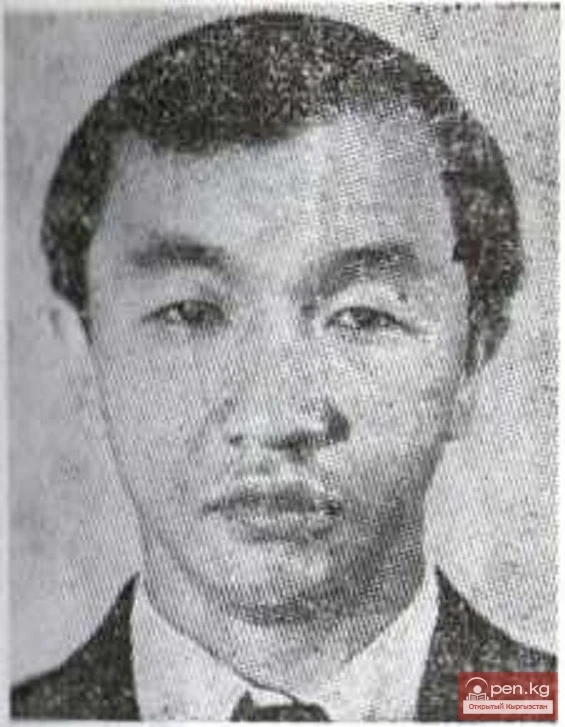
Critic, Literary Scholar Abdyldazhan Akmataliev
Critic and literary scholar A. Akmataliev was born on January 15, 1956, in the city of Naryn,...
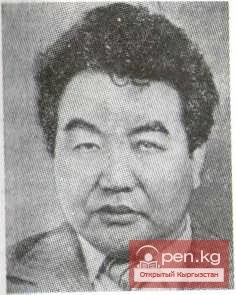
Poet Abzii Kydyrov
Poet A. Kydyrov was born on January 1, 1931, in the village of Kyochu in the present-day Tyup...
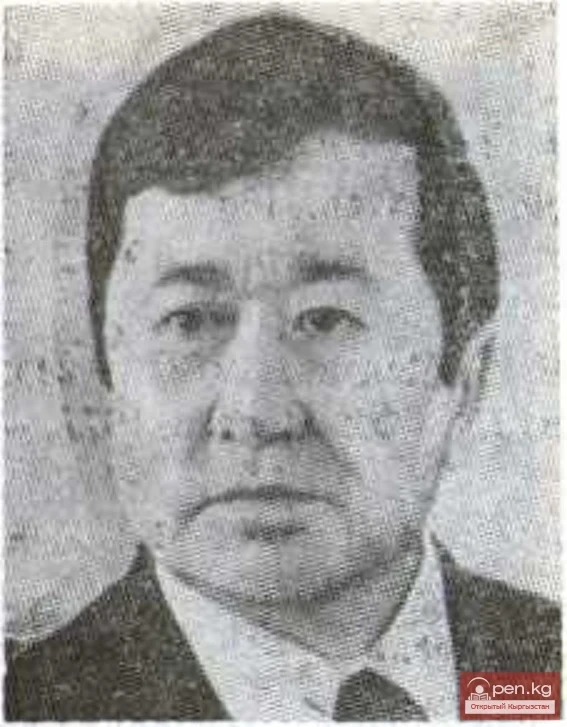
Critic, Literary Scholar Keneshbek Asanaliev
Critic and literary scholar K. Asanaliev was born on June 10, 1928, in the village of Sokuluk (now...
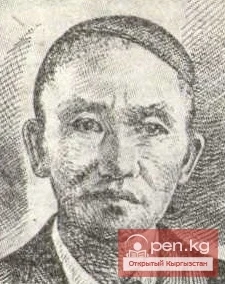
Poet, Playwright Raikan Shukurbeков
Poet and playwright R. Shukurbeikov was born in 1913 and passed away on May 23, 1964, in the...
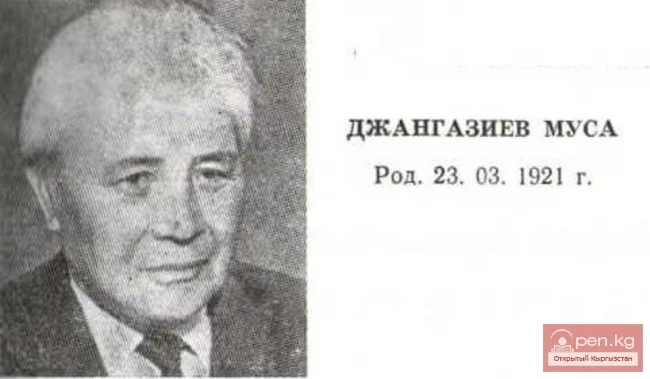
Poet Musa Djangaziev
Poet M. Djangaziev was born in the village of Karasakal in the Sokuluk district of the Kyrgyz SSR...
